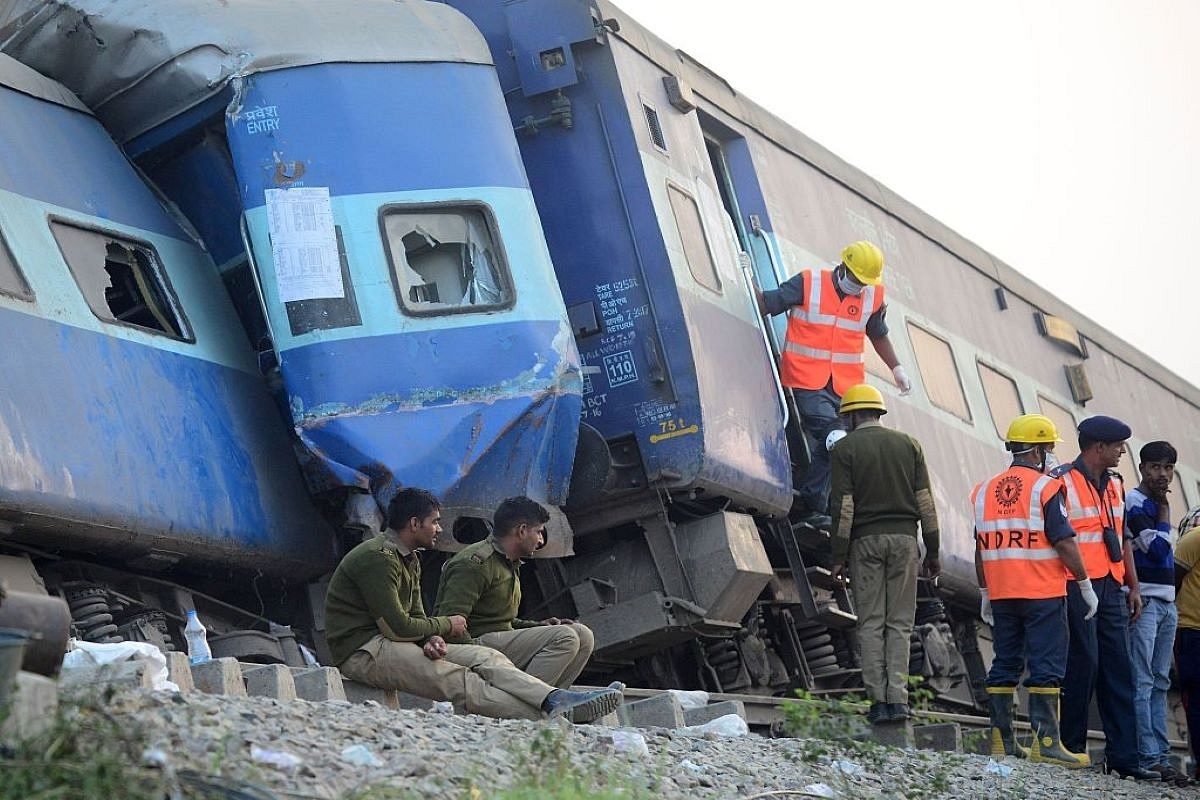News Brief
1,127 Derailments During 2017-21, Poor Maintenance Of Tracks Major Cause: CAG Report
- CAG observed that there were shortfalls ranging from 30-100 per cent in inspections by Track Recording Cars.
- Out of 1,127 derailments during 2017-21, 289 derailments (26 percent) were linked to track renewals.

The total loss of assets in derailment cases was Rs 32.96 crore.
Holding Engineering Department of Indian Railways mainly responsible for majority of derailments, Comptroller and Auditor General of India has pointed out that lack of maintenance of tracks, slow rate of track renewal among other reasons for train accidents.
CAG tabled its reports on “Derailment in Indian Railways” in Parliament on 21 December.
The report covers issues, such as, inspection and maintenance of track to
prevent derailments, investigations on derailments/collisions and
implementation of the preventive recommendations, utilisation of Rashtriya Rail Sanraksha Kosh (RRSK) fund for ensuring safety of track etc.
CAG has observed that there were shortfalls ranging from 30-100 per cent in inspections by Track Recording Cars. Track machines remained idle for want of required traffic blocks by the Operating Department, blocks not planned by Divisions and operational problems etc.
Analysis of ‘Inquiry Reports’ of derailment accidents revealed that 24
factors were mainly responsible for derailments. The total damages/loss of assets in these cases was reported as Rs 32.96 crore.
According to CAG, Engineering Department, Operating Department and Mechanical Department accounted for 422, 275 and 182 derailments respectively.
The major factors responsible for derailments were ‘maintenance of track’, ‘deviation of track parameters beyond permissible limits, incorrect setting of points’, ‘wheel diameter variation and defects in coaches/wagons etc.
In 540 cases (63 per cent), the ‘inquiry reports’ were not submitted to the
accepting authority within the prescribed time schedule. There was also
delay in the acceptance of the reports by accepting authorities in 421 cases
(49 per cent).
The allotment of funds for Track Renewal works and the expenditure on
high priority works from RRSK showed a declining trend during 2017-20.
The funds allocated to track renewal works were also not fully utilised.
There was incorrect booking of expenditure to RRSK to the tune of Rs 48.21
crore.
Out of 1,127 derailments during 2017-21, 289 derailments (26 per
cent) were linked to track renewals.
The Standing Committee on Railways (2016-17) observed that the track
should be maintained in a safe and fit condition. The Committee also
observed that the target kept for track renewals were not commensurate with the actual requirement on ground.
Audit observed that the target for complete track renewal was not achieved during 2017-2020.
In regard to comments of the Standing Committee on the increasing trend of accidents due to failure on the part of Railway Staff, Audit noted that there were 128 SPAD (Signal Passing at Danger) cases during 2017-21.
As per the information available, there were 20,471 Manned Level Crossings (MLCs) in Indian Railways. Out of these, only 2,908 MLCs (9 per cent) targeted for elimination during 2018-21.
Audit observed that out of 2,908 MLCs, 2,059 MLCs (70 per cent) were eliminated.
Support Swarajya's 50 Ground Reports Project & Sponsor A Story
Every general election Swarajya does a 50 ground reports project.
Aimed only at serious readers and those who appreciate the nuances of political undercurrents, the project provides a sense of India's electoral landscape. As you know, these reports are produced after considerable investment of travel, time and effort on the ground.
This time too we've kicked off the project in style and have covered over 30 constituencies already. If you're someone who appreciates such work and have enjoyed our coverage please consider sponsoring a ground report for just Rs 2999 to Rs 19,999 - it goes a long way in helping us produce more quality reportage.
You can also back this project by becoming a subscriber for as little as Rs 999 - so do click on this links and choose a plan that suits you and back us.
Click below to contribute.
Latest